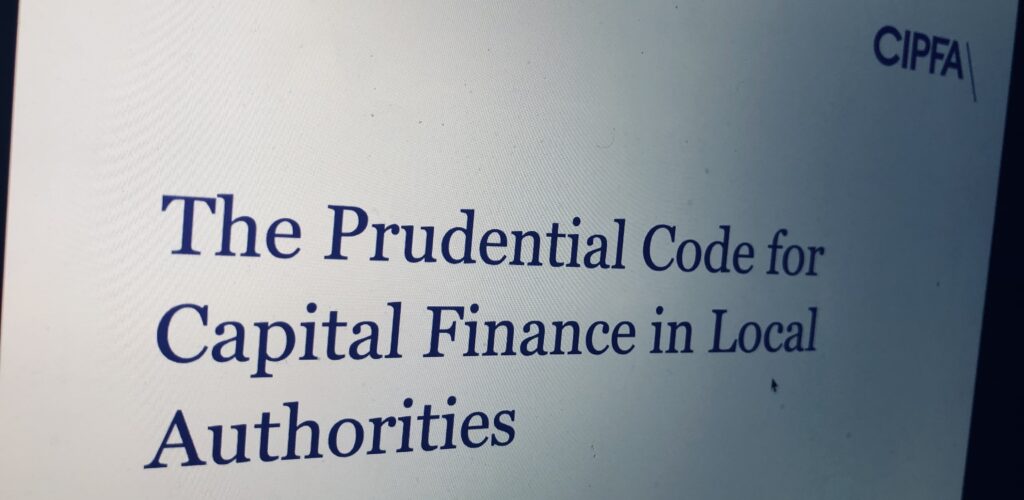 The new Prudential Code offers revised rules for borrowing. Nikki Bishop is sceptical it will work while Gary Fielding offers his support.
The new Prudential Code offers revised rules for borrowing. Nikki Bishop is sceptical it will work while Gary Fielding offers his support.
Nikki Bishop
I have been asked to give my opinion on the new prudential code and the timing is excellent since , at our recent budget council, I ceased to be a section 151 officer as I retire next month. The mantle was passed to my successor. This puts me in a unique position as I no longer have any skin in the game.
I can see the reasoning behind the revisions to the prudential code: there is a worry that a small number of council’s are misbehaving with their investment strategies which could lead to a change in regulation which would tie the hands of local Government.
However, I’m not sure that these changes will have the desired effect.
It is all a matter of proportion and risk, and I think there should be a heavier emphasis on risk management in the code as I believe that this is the key to protecting council finances.
Borrowing and investing for pure regeneration is at the riskier end of any investment curve. These are usually projects that wouldn’t happen without intervention, they are much more marginal with a lower yield.
Often regeneration projects are based around failing town centres with high vacancy rates. Having a portfolio approach which also includes some projects with a higher yield, such as giving a development loan to a housing group to build affordable homes, helps spread this risk.
This portfolio approach is fairly easy if your local authority is a place like Trafford with an already thriving economy. It would be harder in an area in which the less risky higher yield investments are not available. It is not an even playing field.
Transparency in decision making and in risk taking is important. The changes in the code seeking to address that by the introduction of new prudential indicators, however, do not convince me that they will go anyway to helping section 151 officers explain overall risk levels, or how any new investment will affect it, to elected members.
A simple statement which shows how much of the revenue budget is underpinned by investment income, what would happen if it disappeared, and how that is being managed is easier for members to understand.
In summary, the Prudential Code is not perfect but its heart is in the right place. We must be careful not to tie hands so tight that no work gets done but also we need to provide governance tools to support a S151 officer in the advice they give and to protect them from undue pressure.
Nikki Bishop is the outgoing corporate director of finance at Trafford Council and former president of the Society of Municipal Treasurers.
Gary Fielding
Over the years treasury management has tended to be rather niche. Lately, however, there have been notable headlines on “risky investments” and the profile has uncomfortably risen.
When CIPFA first revised the Prudential Code in 2017 I was lukewarm. Four years later and I strongly support CIPFA in this latest revision.
I have always been clear that we could not and should not borrow for any commercial yield investments. I have heard of cases, however, where fanciful arguments were spun on the basis that the yield from an outside commercial investment will be ploughed back into frontline service, some of which is local economic development, so it is permissible to borrow.
Some appear to have simply ignored it. For some the pursuit for yield seems to have become the raison d’etre rather than the provision of public service.
As lead finance professionals, we should be ensuring that we avoid such excesses. We should surely be ensuring that we are proportionate in all that we do, exercising good judgment and upholding standards rather than working round them.
But we must also ensure that government acts proportionately too. As a respected colleague stated: the government did not conclude the whole of the NHS was broken when the Mid-Staffordshire scandal broke so we should not start extrapolating from extreme council investments.
And let’s not forget many councils have shown how vulnerable they are during the pandemic to falls in income in “routine” commercial activities such as parking, leisure and airports—nobody thought them reckless pre-Covid did they?.
Cash returns have been, and remain, incredibly low so some cash-backed investments for yield still seem appropriate where full due diligence takes place.
My fear is that government may have a more underlying antipathy towards commercial investments beyond using borrowing. But even if that is true, let’s not make it easy for them by getting behind the revised Prudential Code rather than seeking to evade it.
Gary Fielding is corporate director, strategic resource, North Yorkshire County Council and past president of the Society of County treasurers.
FREE monthly newsletters
Subscribe to Room151 Newsletters
Monthly Online Treasury Briefing
Sign up here with a .gov.uk email address
Room151 Webinars
Visit the Room151 channel













